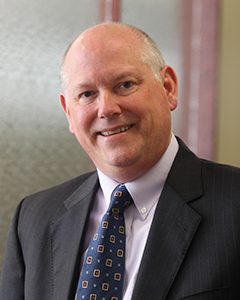Understanding the Scope of Responsibilities as a Retirement Plan Committee Member

A retirement plan committee member may be a plan fiduciary and, consequently, held personally liable to the plan if he or she is granted or exercises discretion in the operation or administration of a retirement plan that is subject to the Employee Retirement Income Security Act of 1974 (ERISA).
According to the Department of Labor (DOL) Interpretive Bulletin 75-5[1], if the governing plan documents state that the plan committee controls and manages the operation and administration of the plan and specifies who shall constitute the plan committee (either by position or by naming individuals to the committee), then such individuals are named fiduciaries of the plan pursuant to ERISA §402(a)[2].
A number of court cases have found that a plan committee member may be a functional fiduciary of the plan because of his or her actions and subject to personal liability if he or she exercises discretion in the administration of the plan Gaunt v. CSX Transp., Inc., 759 F. Supp. 1313 (N.D. Ind. 1991) [3]. A plan committee member may consequently be held personally liable to the plan for losses resulting from fiduciary breaches.
Having a plan committee charter may help mitigate fiduciary liability for the committee members by carefully outlining the members’ roles and responsibilities. Further, having an ERISA 3(16) Fiduciary Administrator may also help to reduce fiduciary liability risk for a retirement plan committee. A 3(16) fiduciary assumes responsibility and liability for making sure that plan administrative tasks are done correctly and on time.
Plan sponsors and retirement committee members may not have—or want—the knowledge of how retirement plans work, yet in their role as fiduciaries, they are legally responsible for administering their plans. By engaging a 3(16) fiduciary, the plan sponsor can shift fiduciary responsibility for these duties and mitigate the risk that comes with running a retirement plan.
Article printed from Retirement Learning Center: https://retirementlc.com
URL to article:https://retirementlc.com/are-plan-committee-members-fiduciaries/URLs in this post: [1] Department of Labor (DOL) Interpretive Bulletin 75-5:
https://www.govinfo.gov/content/pkg/CFR-2007-title29-vol9/pdf/CFR-2007-title29-vol9-sec2509-75-5.pdf
[2] ERISA §402(a): https://www.govinfo.gov/content/pkg/COMPS-896/pdf/COMPS-896.pdf
[3] Gaunt v. CSX Transp., Inc., 759 F. Supp. 1313 (N.D. Ind. 1991): https://law.justia.com/cases/federal/district-courts/FSupp/759/1313/1472919/
About the Author
